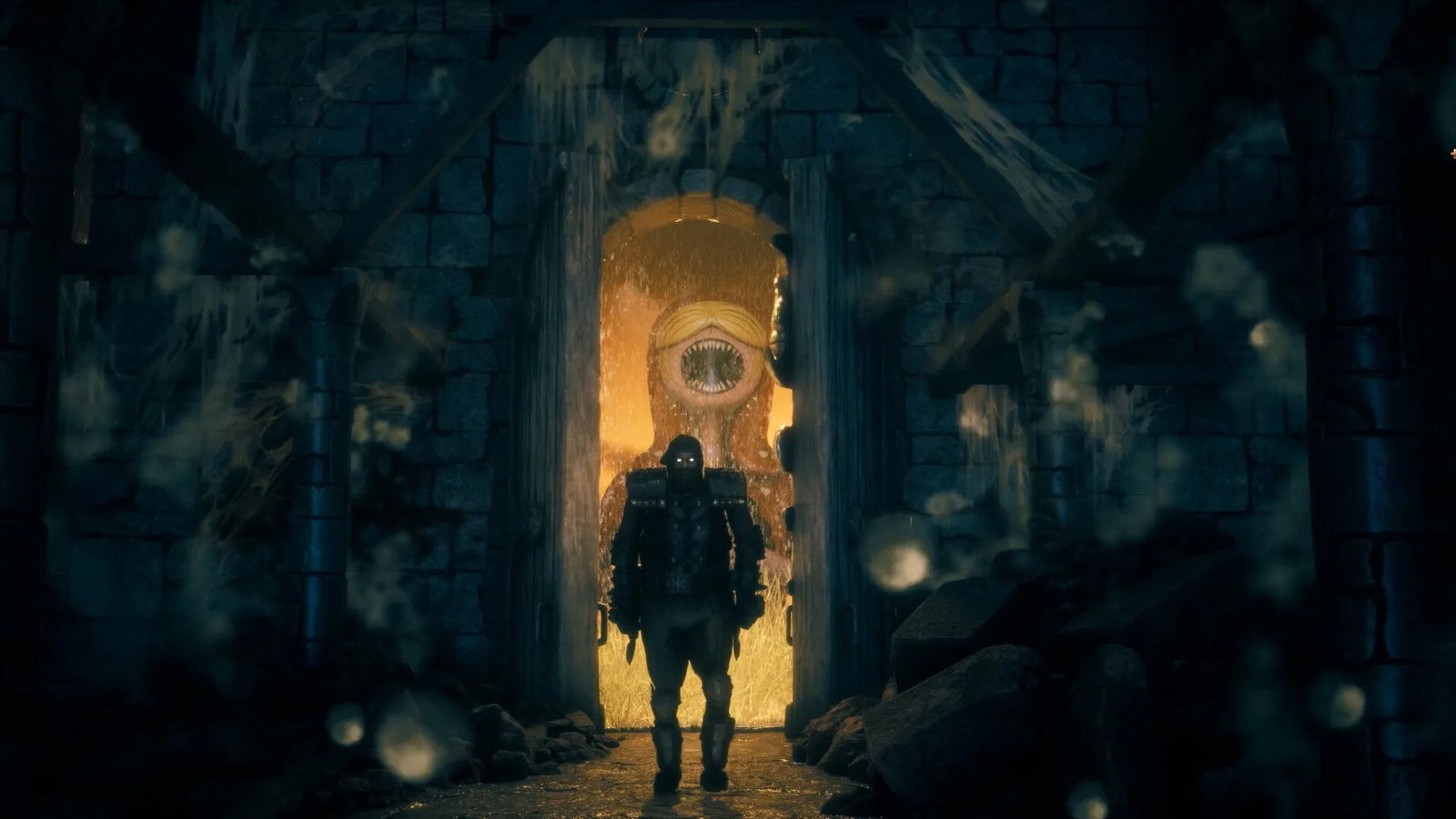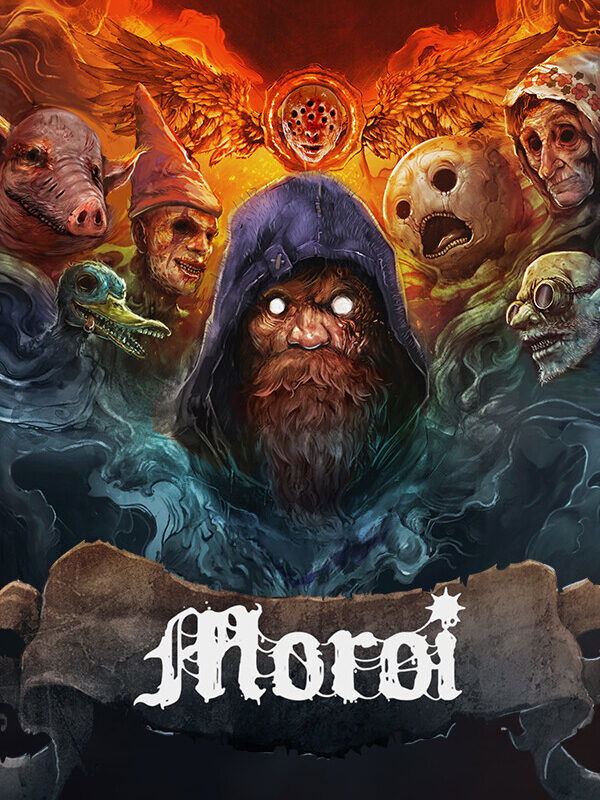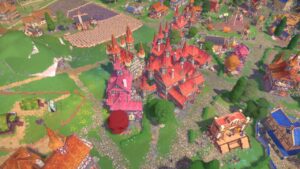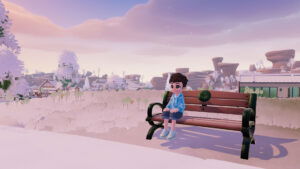Before I started playing Moroi, I was only really aware of what a Moroi was through the context of Phasmaphobia. I was aware it was some kind of ghost, but I hadn’t really taken the time to properly look into its origins. So when I saw a game named after the spectre, I assumed it would be a spooktacular romp and in some ways I was right, but in many ways I was dead wrong.
Moroi initially hooked me with a truly evocative aesthetic and a seemingly interesting gameplay loop. However, the longer I played, the more frustrated I became, and it started to become clear that an interesting look was really all the game had going for it. I honestly can’t remember the last time I bounced so hard off something I theoretically should have loved.
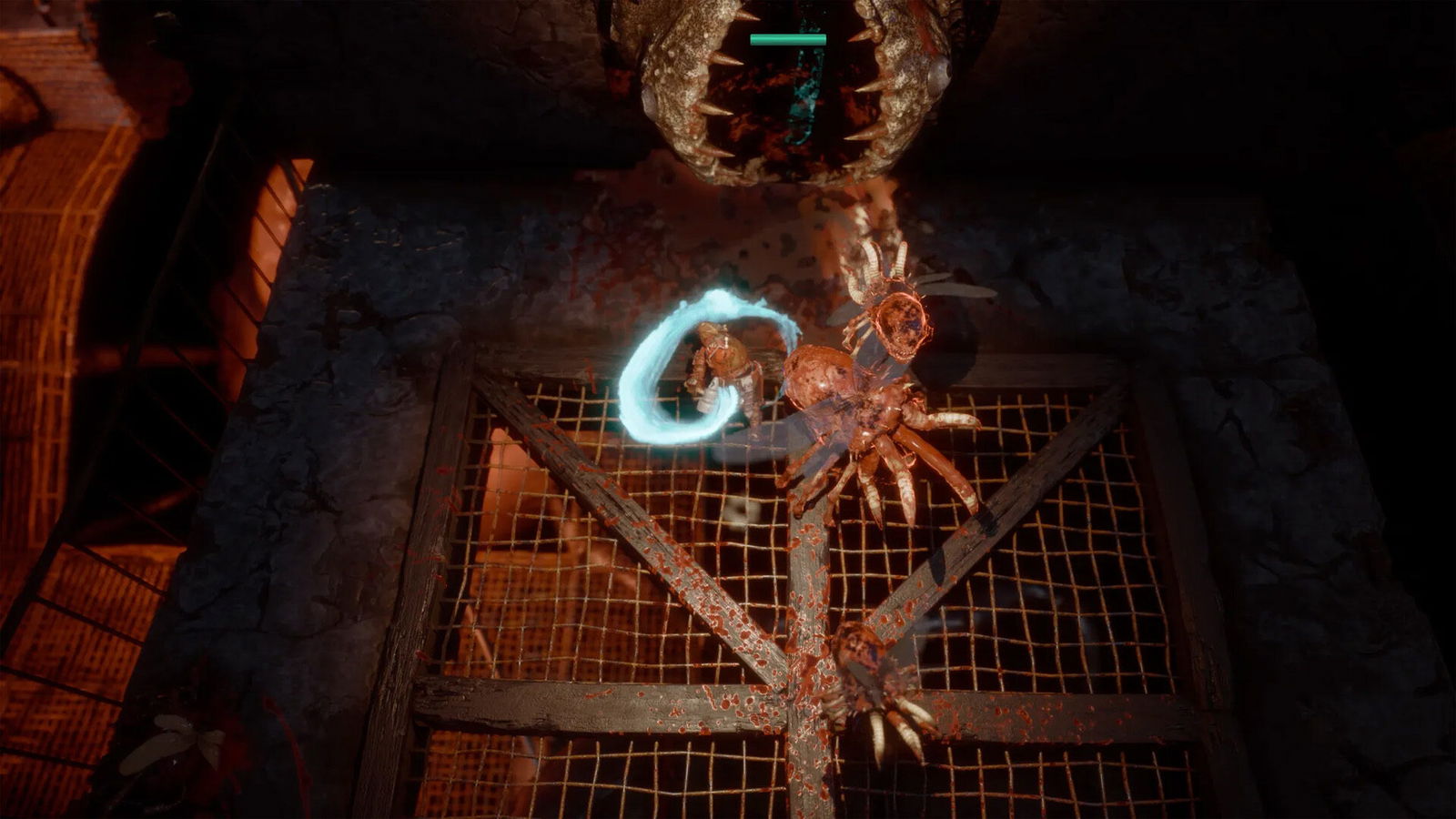
It’s hard to talk about the story of Moroi because it’s one shrouded in intentional mystery, and to say too much will veer too far into spoiler territory. Simply put, it begins when the protagonist awakens in a strange prison with no memory of who he is or how he got there. The only thing he knows is that he must escape. However, the prison—known as the Cosmic Engine—is an ever-changing palace of nightmares, and the machinations designed to torment the protagonist may also reveal dark truths about him.
“Moroi initially hooked me with a truly evocative aesthetic and a seemingly interesting gameplay loop.”
I will say that the story itself is one of the better elements of Moroi. It runs a broad gamut of vibes, switching from macabre to tongue-in-cheek to bizarre and creepy with every passing chapter. Dialogue between characters is strange and sometimes self-referential, adding to the sense of disorientation that comes with the surreal setting. And while the game does boast of multiple endings requiring multiple playthroughs, certain plot elements may be a bit obvious to more perceptive players.
However, it was the gameplay in Moroi that was the first thing that didn’t really sit right with me. It essentially takes two forms: exploring each level with some light puzzle-solving, and mini-arenas to fight enemies. The problem I have is that both of these formats are a little undercooked. The puzzles range from painfully easy, process-of-elimination solutions to needlessly convoluted, the dreaded lack of information that is all too common in poor puzzle design. A lot of times, you’ll get a puzzle in one room and the solution will be in almost a straight line to the next, so they’re hardly puzzles and more like fetch quests.
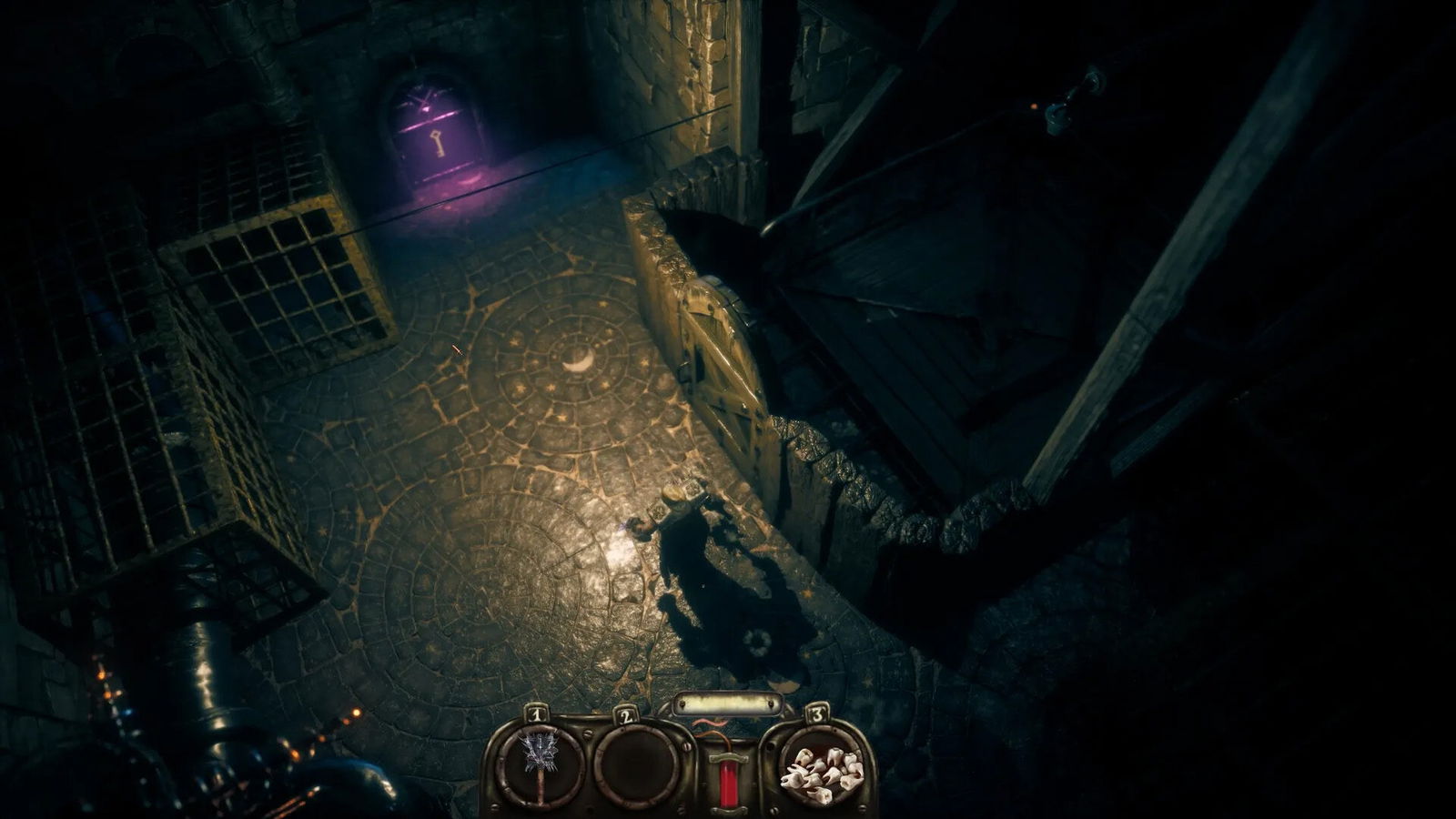
Combat is equally monotonous. While Moroi offers players a range of both melee and ranged weapons, alongside equippable items that provide different bonuses, the actual execution of the combat feels so choppy and weightless that it is genuinely unsatisfying. Additionally, for some reason, the game puts ranged weapons on an absurdly long cooldown, which is generally frustrating, especially in certain fights where using ranged weapons is more advantageous than melee.
Another significant factor contributing to the unsatisfying nature of combat is the game’s top-down perspective. Due to this camera style, the gameplay attempts to emulate a twin-stick experience but lacks much of the nuance in movement and positioning that makes those games exciting. Also—and this might just be a personal preference—the character always faces wherever the cursor is pointed and never turns to match movement. While this is somewhat fine if you are playing with a mouse, when using a controller, it simply feels off.
“Visually, Moroi has an incredible aesthetic that reminds me more than anything of American McGee’s Alice.”
Actually, that top-down perspective leads me to my next point. Oddly enough, the best and worst thing about Moroi is its presentation. Visually, Moroi has an incredible aesthetic that reminds me more than anything of American McGee’s Alice. It’s a bloody, twisted, horrible mutation of a fairytale landscape that is as oddly whimsical as it is METAL. Furthermore, the game’s soundtrack really helps to build the atmosphere as well, switching from sombre orchestral tracks and stirring ambiance, to disparate synth keys, to absolute BANGER heavy-metal tracks for the combat.
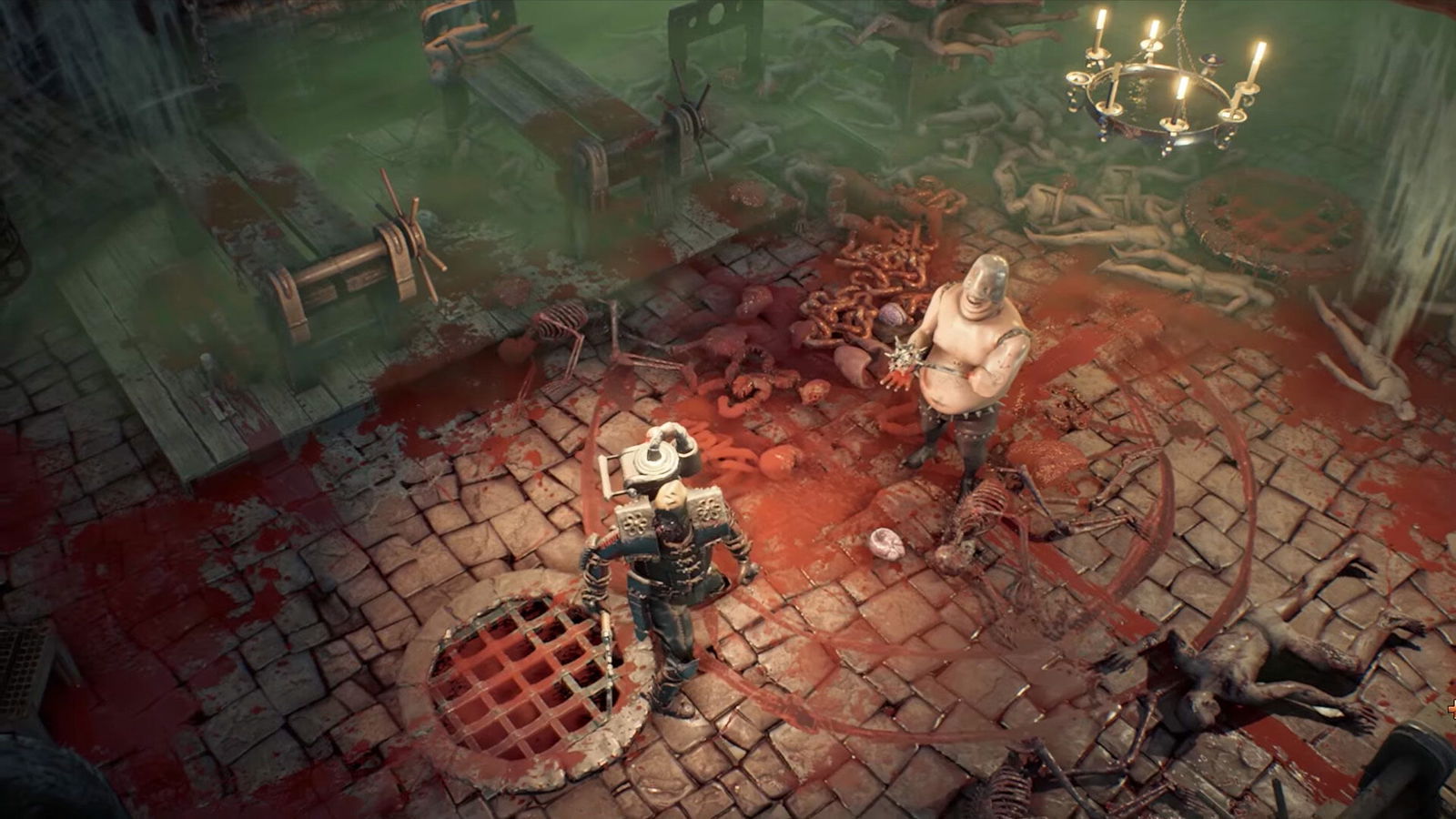
However, the top-down perspective bothered me because it limits both the design of levels and the player’s ability to perceive them. I couldn’t help but wish that Moroi had taken a similar approach to its game design as American McGee’s Alice and used a third-person perspective. It would have allowed for much more interesting level design, since how players navigate levels in 3D space would be totally different. It would have also made combat much more engaging and intense, as players would have been given limited information during encounters and would need to approach them differently.
Another point that deserves mention is Moroi’s performance. During my review, I noticed several graphical glitches, most notably choppy animations and, to me, a peculiar issue where the protagonist snaps to his idle animation without any transition frames if you roll without moving. This extended to many of the execution moves, where the protagonist would use instant transmission to reach an enemy, and in multiple instances, weapons would either not connect properly or the animation would abruptly snap to a finish.
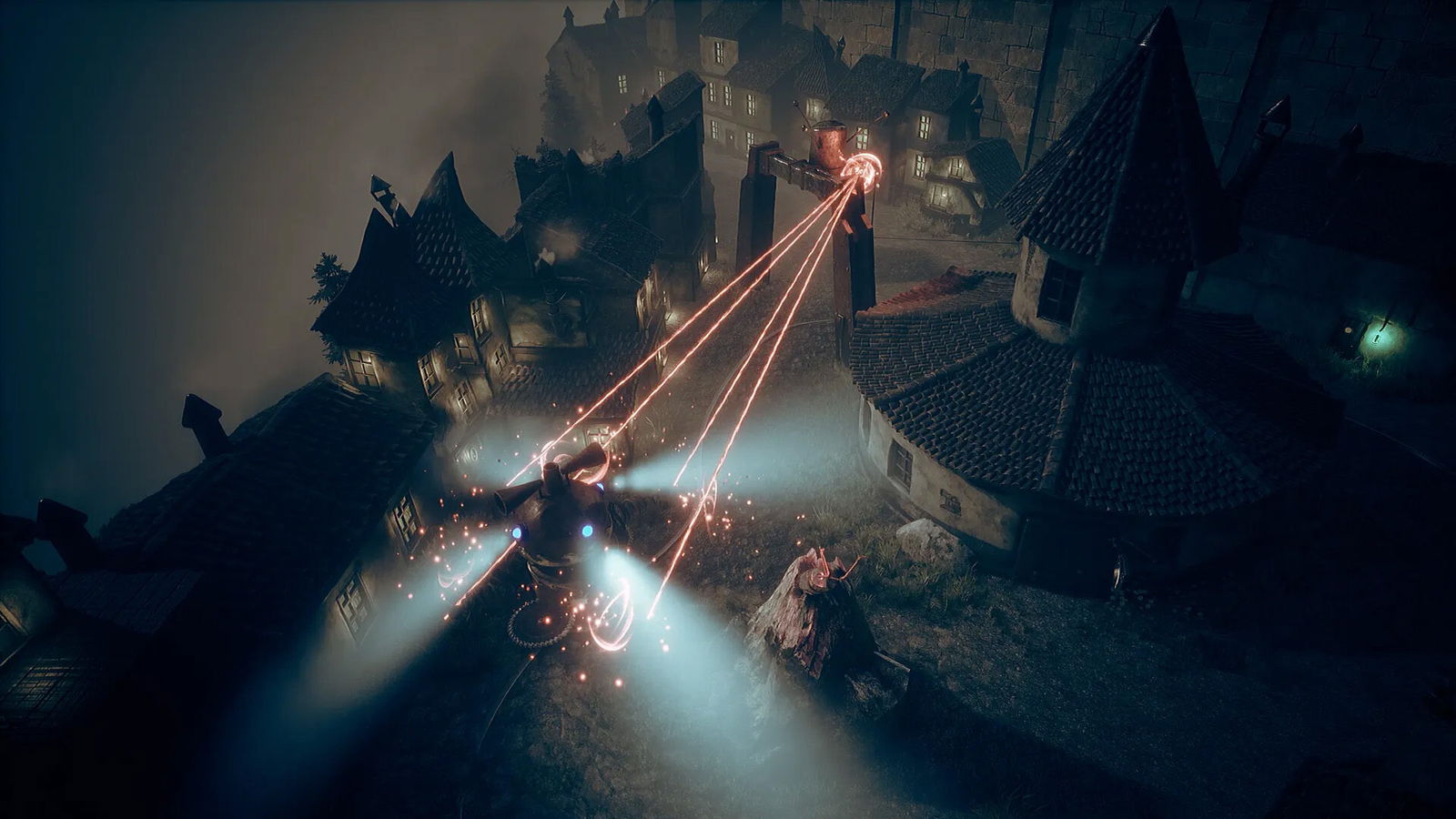
Furthermore, there was a crucial part in Chapter Three where the game would just crash repeatedly, even after reloading the game, and while Violet Saint did put out a pre-release a patch that seemed to fix several issues, it also removed a crucial dialouge encounter that set up the objectives for that chapter, despite the rest of it playing out mostly the same. On top of this, a lot of the game’s music repeats with noticeable loops; a couple of times, the music didn’t transition for combat, which makes the game feel incredibly sloppy.
I honestly really wanted to like Moroi. Its overall visual style and storytelling really hooked me from the outset, but between its amateurish performance and lacklustre gameplay, I couldn’t really stay invested. There’s definitely an interesting story in here if you can put up with the game’s more frustrating elements, but I for one could not.
